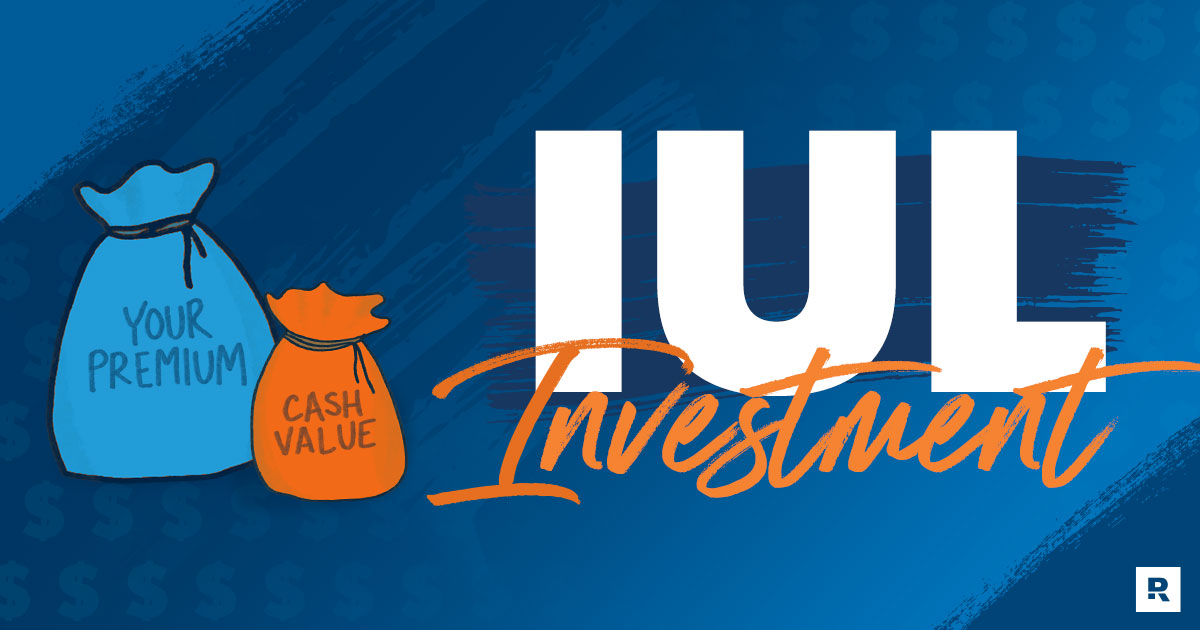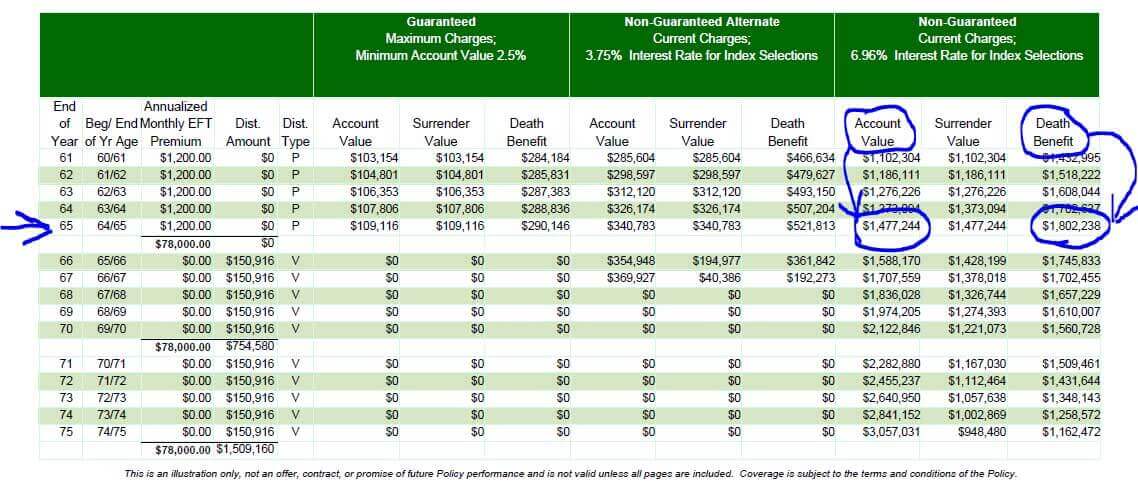All Categories
Featured
Table of Contents
Do they compare the IUL to something like the Vanguard Overall Supply Market Fund Admiral Shares with no load, a cost ratio (EMERGENCY ROOM) of 5 basis factors, a turnover ratio of 4.3%, and a phenomenal tax-efficient record of circulations? No, they contrast it to some dreadful actively taken care of fund with an 8% tons, a 2% EMERGENCY ROOM, an 80% turnover ratio, and a terrible record of short-term resources gain distributions.
Mutual funds commonly make yearly taxable distributions to fund proprietors, even when the worth of their fund has actually gone down in value. Mutual funds not only need earnings coverage (and the resulting yearly taxation) when the common fund is rising in value, however can also enforce earnings tax obligations in a year when the fund has actually gone down in value.
That's not how mutual funds function. You can tax-manage the fund, harvesting losses and gains in order to reduce taxable circulations to the investors, yet that isn't in some way mosting likely to alter the reported return of the fund. Only Bernie Madoff kinds can do that. IULs avoid myriad tax obligation catches. The ownership of shared funds might need the common fund owner to pay approximated tax obligations.

IULs are easy to place so that, at the proprietor's fatality, the beneficiary is exempt to either income or inheritance tax. The very same tax decrease methods do not work nearly as well with common funds. There are countless, commonly costly, tax obligation catches related to the timed trading of common fund shares, catches that do not relate to indexed life Insurance policy.
Possibilities aren't extremely high that you're going to be subject to the AMT because of your mutual fund distributions if you aren't without them. The remainder of this one is half-truths at ideal. For instance, while it is true that there is no earnings tax as a result of your beneficiaries when they inherit the profits of your IUL plan, it is also real that there is no earnings tax as a result of your heirs when they acquire a mutual fund in a taxed account from you.
Universal Life Insurance Questions
There are far better methods to stay clear of estate tax issues than purchasing financial investments with low returns. Mutual funds might trigger revenue taxes of Social Security benefits.

The development within the IUL is tax-deferred and may be taken as free of tax revenue by means of car loans. The policy proprietor (vs. the mutual fund manager) is in control of his or her reportable revenue, hence allowing them to minimize and even remove the taxes of their Social Protection benefits. This set is terrific.
Here's an additional very little concern. It holds true if you purchase a common fund for claim $10 per share prior to the distribution day, and it distributes a $0.50 circulation, you are after that going to owe tax obligations (probably 7-10 cents per share) in spite of the fact that you haven't yet had any kind of gains.
In the end, it's really about the after-tax return, not how much you pay in taxes. You're likewise most likely going to have more money after paying those taxes. The record-keeping needs for possessing shared funds are substantially much more intricate.
With an IUL, one's records are maintained by the insurance provider, duplicates of annual declarations are mailed to the owner, and distributions (if any type of) are amounted to and reported at year end. This set is likewise type of silly. Certainly you ought to maintain your tax records in instance of an audit.
Best Universal Life
All you have to do is push the paper right into your tax folder when it appears in the mail. Hardly a factor to acquire life insurance. It resembles this individual has actually never bought a taxed account or something. Mutual funds are generally component of a decedent's probated estate.
Additionally, they undergo the hold-ups and expenses of probate. The proceeds of the IUL plan, on the various other hand, is constantly a non-probate distribution that passes outside of probate straight to one's named recipients, and is as a result not subject to one's posthumous creditors, unwanted public disclosure, or similar delays and prices.
Medicaid disqualification and lifetime earnings. An IUL can give their owners with a stream of revenue for their entire lifetime, no matter of just how lengthy they live.

This is valuable when arranging one's events, and transforming properties to earnings before an assisted living home arrest. Shared funds can not be transformed in a comparable fashion, and are generally taken into consideration countable Medicaid properties. This is an additional stupid one promoting that poor people (you recognize, the ones who need Medicaid, a government program for the inadequate, to pay for their assisted living home) should make use of IUL rather than shared funds.
Universal Life Insurance For Business Owners
And life insurance coverage looks terrible when compared fairly versus a pension. Second, individuals that have cash to get IUL over and beyond their pension are mosting likely to need to be awful at handling money in order to ever receive Medicaid to spend for their retirement home costs.
Chronic and incurable illness biker. All plans will allow a proprietor's easy accessibility to cash from their plan, typically waiving any type of abandonment penalties when such individuals endure a major ailment, require at-home care, or end up being constrained to a retirement home. Shared funds do not give a similar waiver when contingent deferred sales costs still relate to a mutual fund account whose owner requires to sell some shares to fund the prices of such a remain.
What Is No Lapse Universal Life Insurance
Yet you reach pay more for that benefit (biker) with an insurance coverage. What a large amount! Indexed universal life insurance policy gives fatality advantages to the recipients of the IUL proprietors, and neither the proprietor neither the recipient can ever lose money as a result of a down market. Shared funds supply no such guarantees or survivor benefit of any type of kind.
I absolutely don't require one after I get to economic independence. Do I desire one? On average, a purchaser of life insurance policy pays for the true expense of the life insurance policy benefit, plus the expenses of the plan, plus the earnings of the insurance coverage firm.
Maximum Funded Indexed Universal Life
I'm not completely certain why Mr. Morais threw in the entire "you can not shed cash" once again here as it was covered fairly well in # 1. He simply desired to duplicate the most effective marketing point for these things I suppose. Once again, you don't lose small bucks, yet you can lose real bucks, as well as face major chance price as a result of reduced returns.

An indexed universal life insurance policy policy owner might trade their plan for an entirely different policy without triggering income tax obligations. A common fund owner can not relocate funds from one shared fund firm to an additional without offering his shares at the former (hence activating a taxable occasion), and repurchasing brand-new shares at the last, usually based on sales charges at both.
While it is real that you can exchange one insurance policy for one more, the reason that individuals do this is that the very first one is such an awful plan that also after getting a new one and experiencing the very early, negative return years, you'll still come out ahead. If they were sold the ideal policy the initial time, they shouldn't have any kind of need to ever trade it and undergo the very early, adverse return years again.
Latest Posts
Declared Rate Universal Life Insurance
Best Universal Life Insurance Policy
Flexibility Of Universal Life